
Video Insights
Drs. Gurram and Yerram conclude with a discussion on the importance of multidisciplinary care for hereditary kidney cancer.
Drs. Gurram and Yerram review options for hereditary kidney cancers, highlight data on bevacizumab plus erlotinib, anlotinib.
Dr. Gopa Iyer discusses his investigation of the relationship between DDR, mUC molecular subtypes and survival outcomes.
Drs. Ahmed, Ciuro conclude with a discussion on bridging access gaps between academic and community practices.
Drs. Ahmed, Ciuro discuss criteria for treatment de-escalation, and the emerging significance of PSA nadir as a biomarker.
Drs. Gurram, Yerram examine the clinical features and aggressive behavior of FH-deficient renal cell carcinoma and more.
Drs. Gurram, Yerram provide an overview of hereditary vs sporadic kidney cancer and highlight key syndromes like VHL, HLRCC.
At the Oncology Forum, Dr. Sanjay Juneja led a dynamic discussion covering pivotal developments across genitourinary cancers.
Drs. Ahdoot, Yerram discusses trial data, early adoption, and why en bloc TURBT is a safe option worth trying in practice.
Drs. Ahdoot, Yerram review trial data and share practical tips for adopting en bloc TURBT across real-world settings.
Dr. Loïc Djaileb explores the use of RECIP 1.0 criteria with SPECT/CT and the efficacy of this strategy in monitoring mCRPC.
Drs. Tagawa and Marulanda Corzo discuss the use of single time-point SPECT/CT dosimetry for 177Lu-PSMA targeted RLT.
Dr. Nadine Mallak talks about 18F-fluciclovine to detect disease in BCR of prostate cancer when the standard of care fails.
Drs. Ahdoot and Yerram weigh how to approach tumors located in challenging areas, and the role of detrusor muscle sampling.
Drs. Ahdoot and Yerram discuss the fundamental reasons for adopting en bloc resection in bladder cancer surgery.
Dr. Miles highlights the dilemma of managing PC with BCR after prostatectomy but no visible disease on standard imaging.
Drs. Ahmed and Ciuro discuss the real-world quality-of-life improvements patients may experience after de-escalating therapy.
Drs. Ahmed and Ciuro explore the rationale and complexity behind treatment de-escalation in de novo oligometastatic HSPC.
Professor Bex discusses the phase II NEOAVAX trial that evaluated avelumab/axitinib as neoadjuvant therapy in localized RCC.
Drs. Packiam and Yerram conclude with an AI-powered pathology tool designed to predict response to BCG in NMIBC.
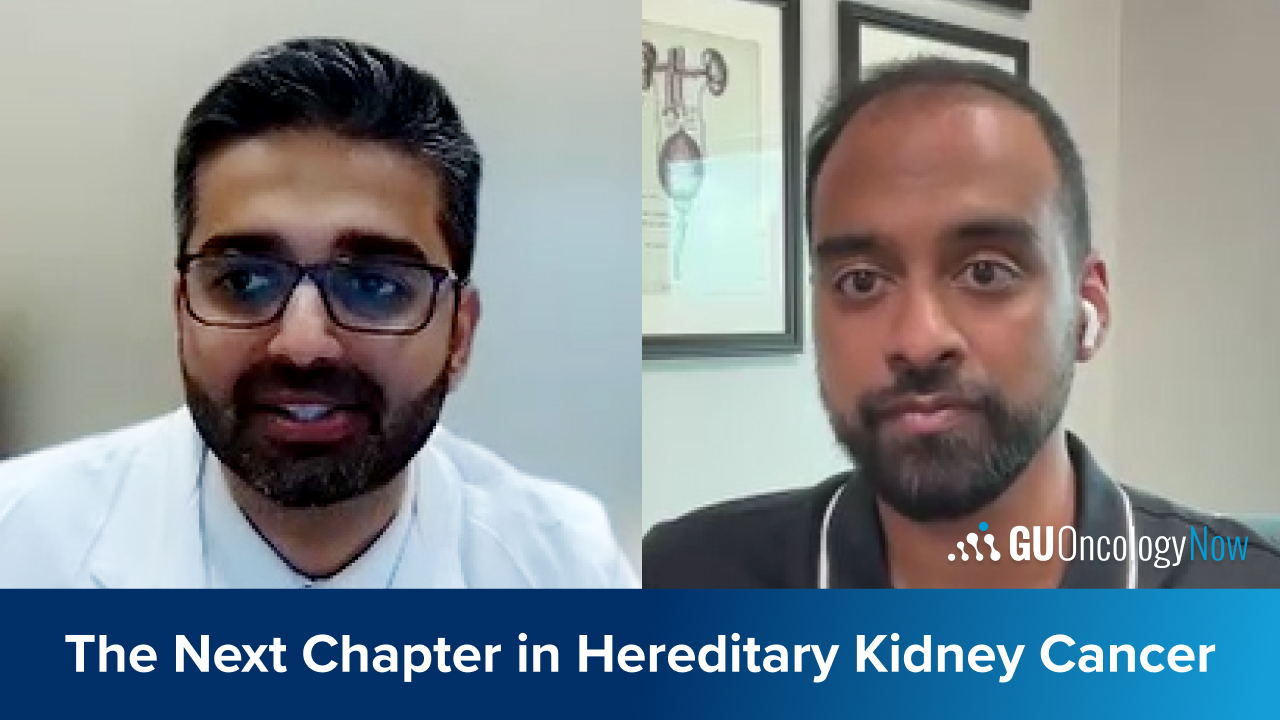
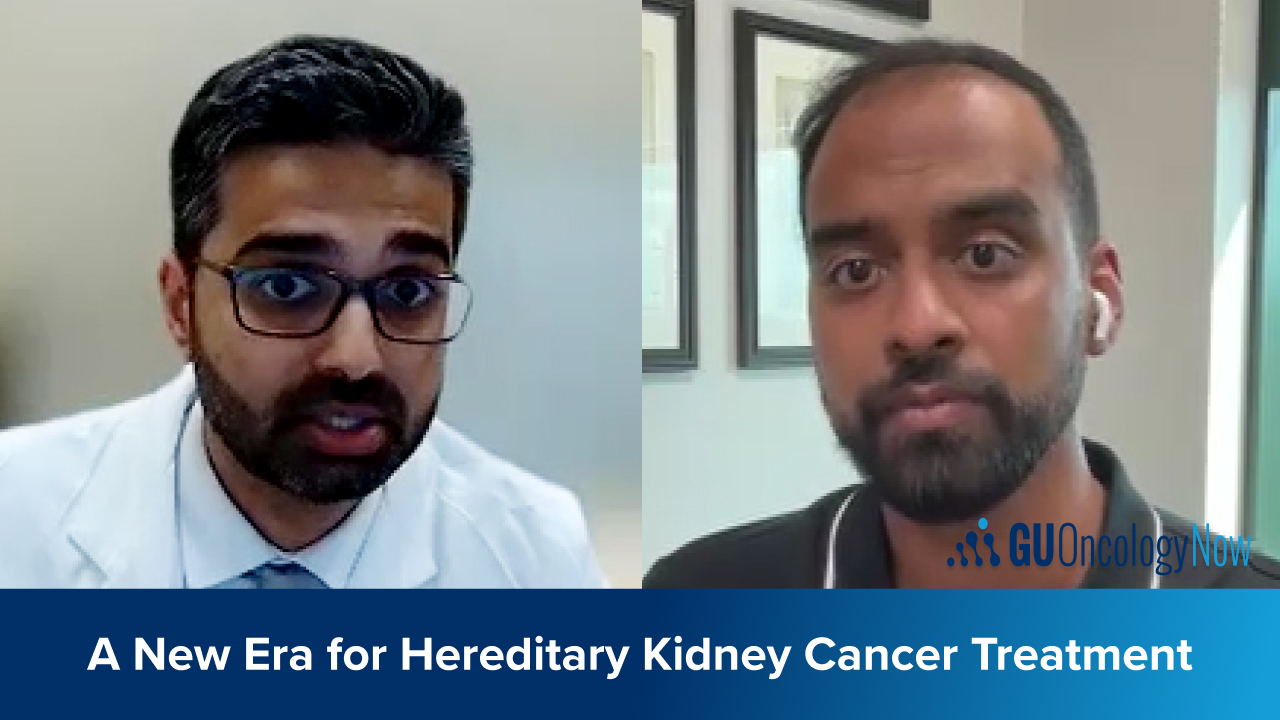
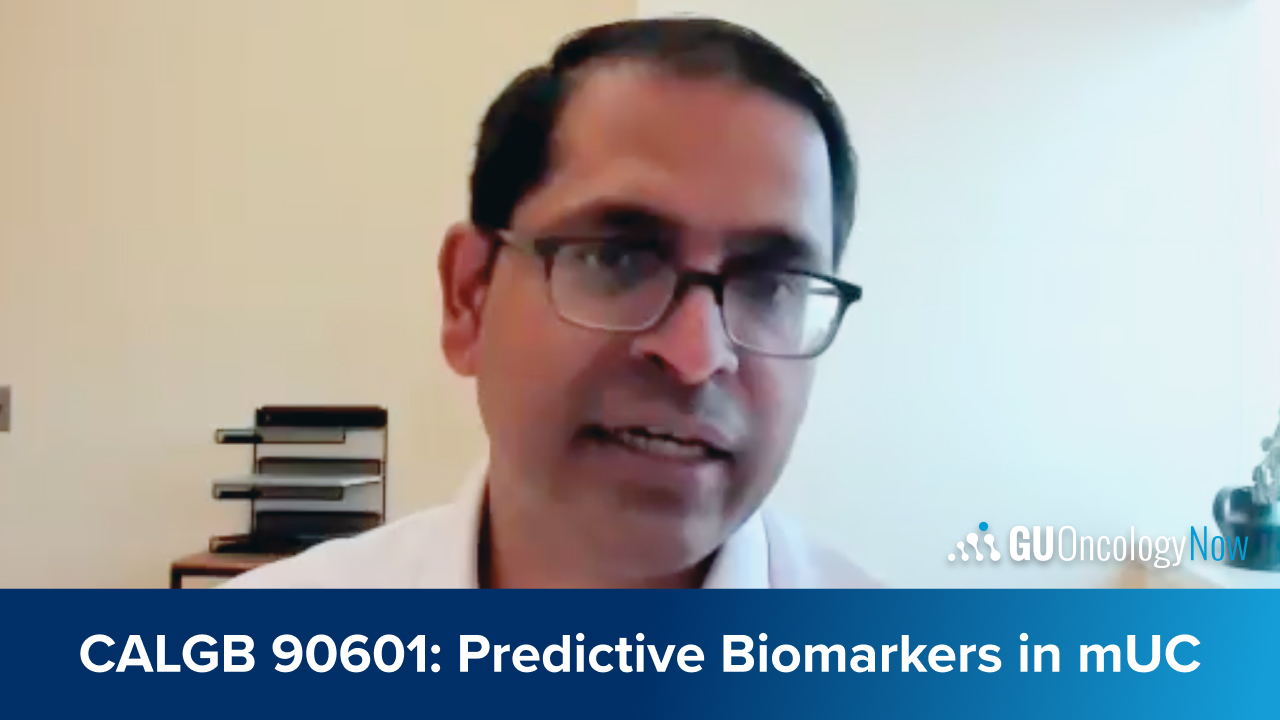



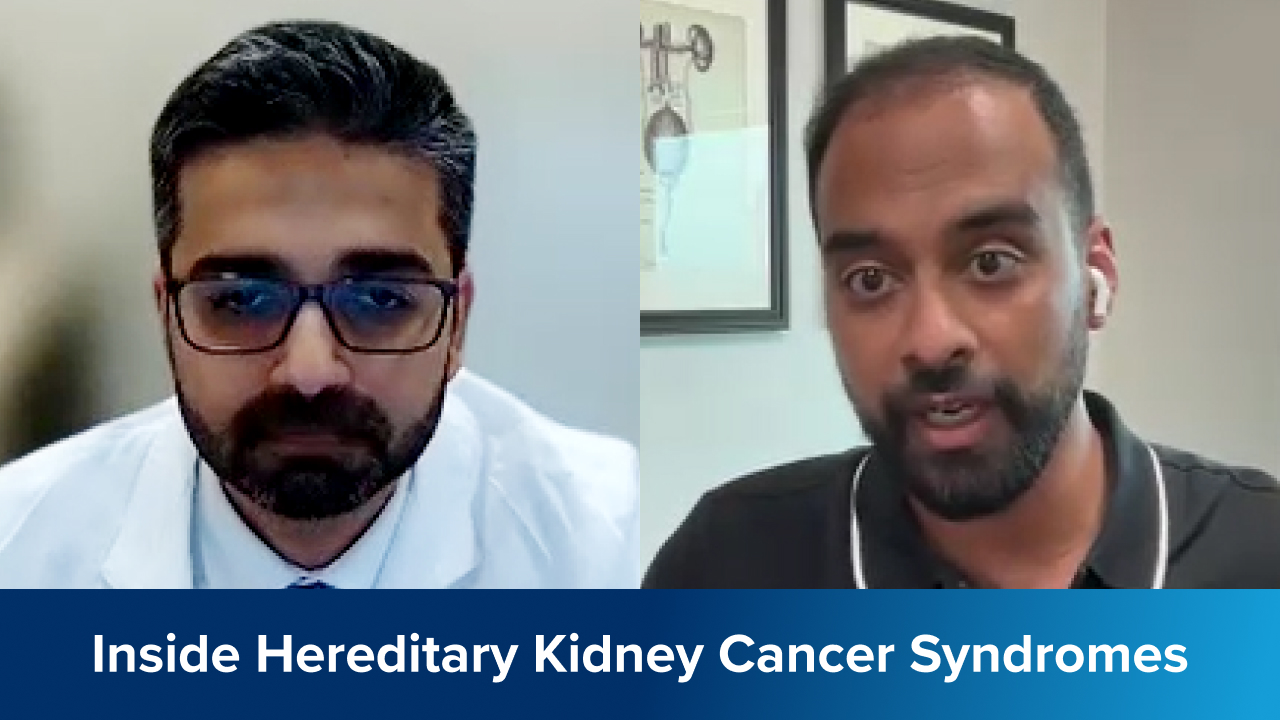

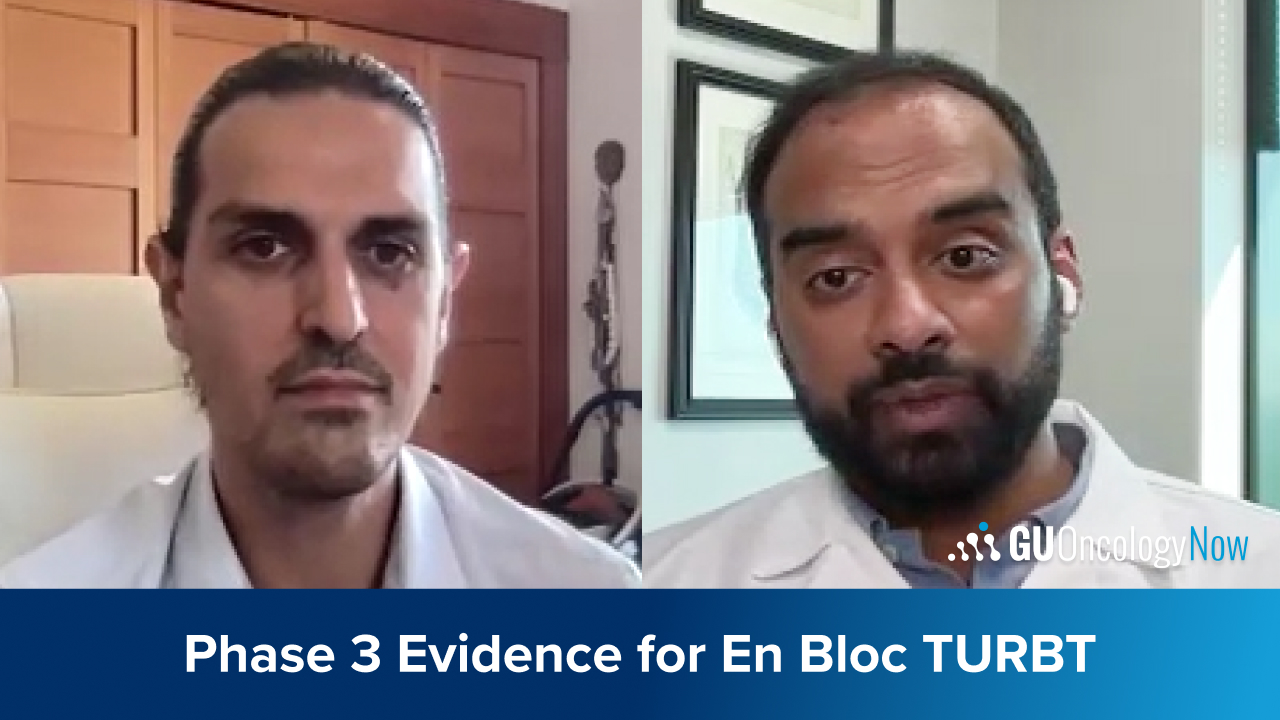
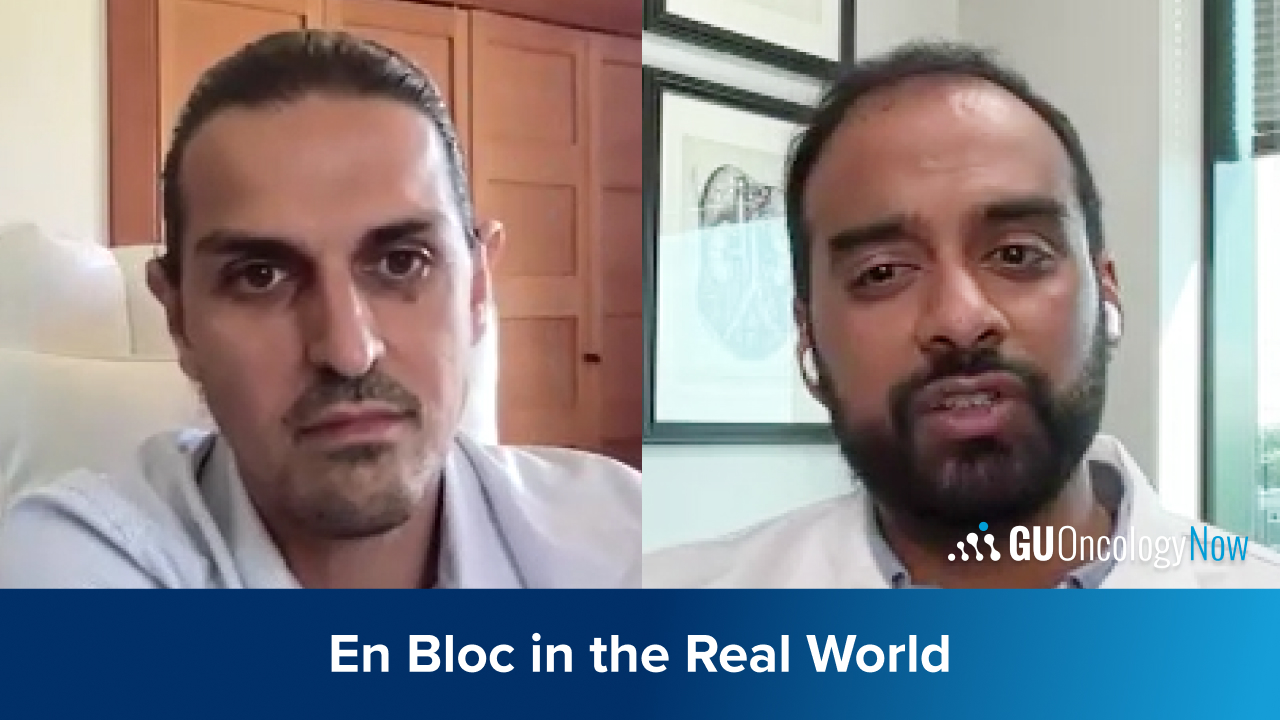
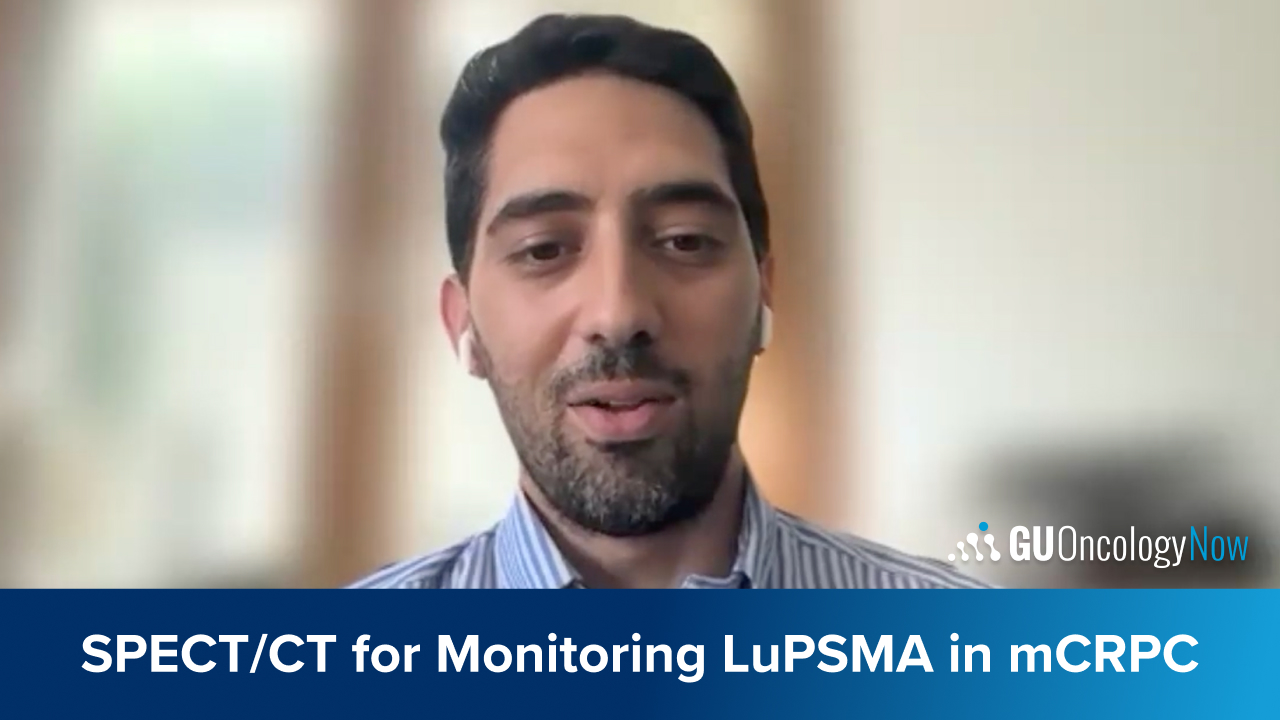
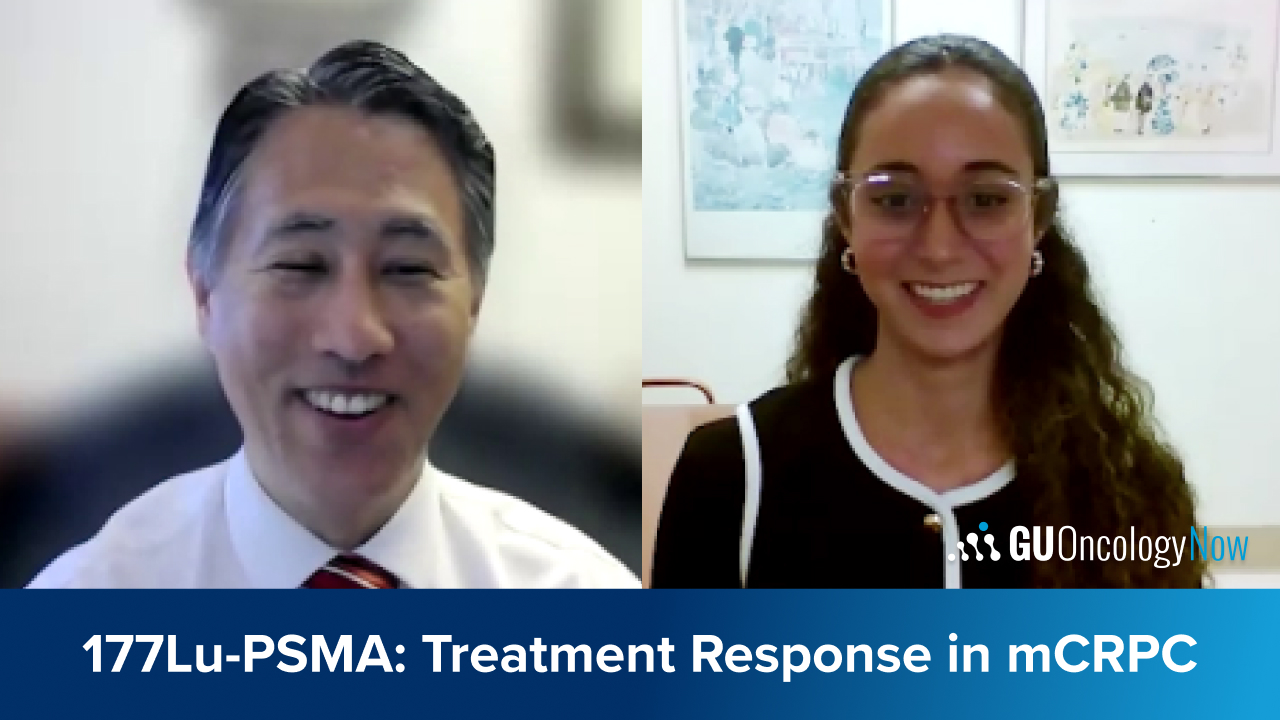
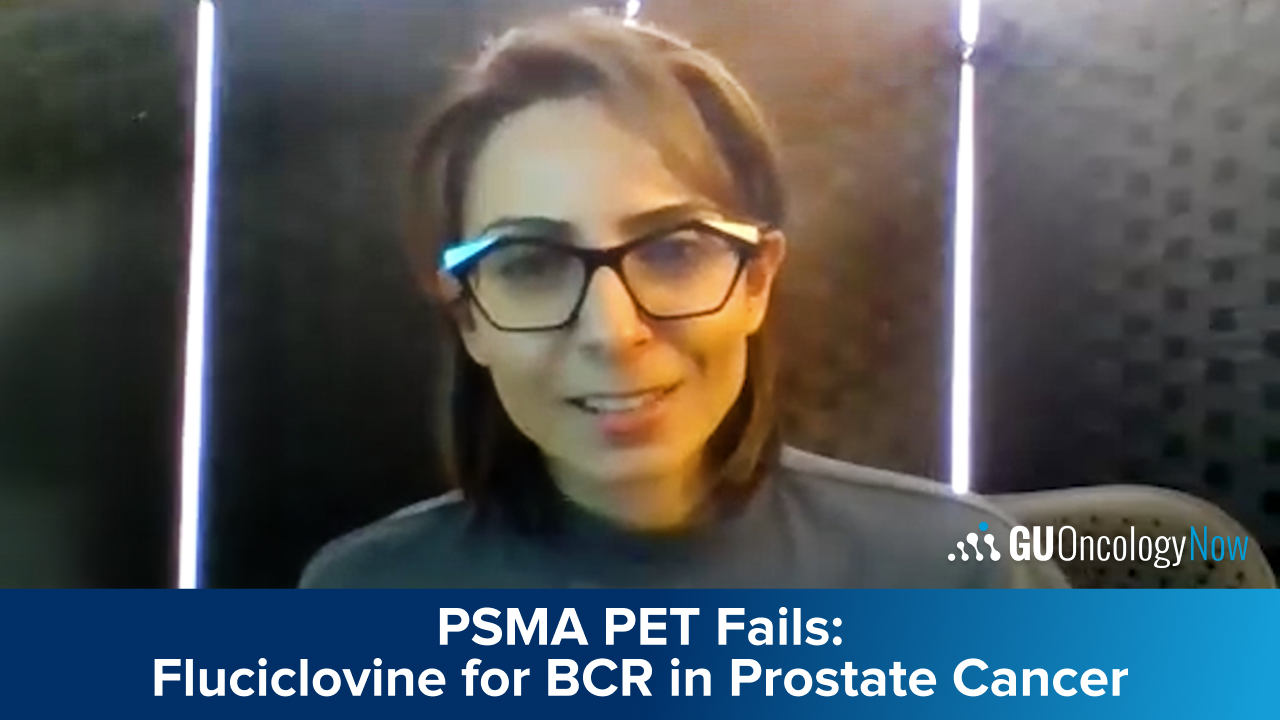
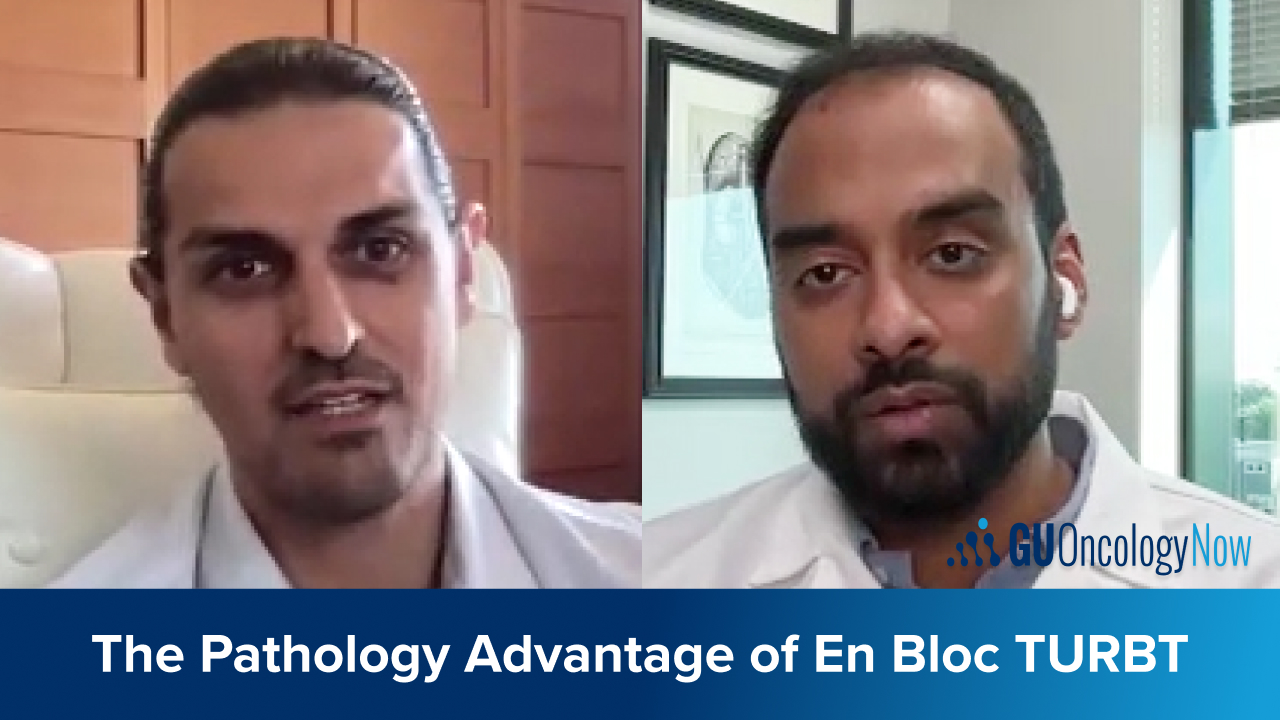

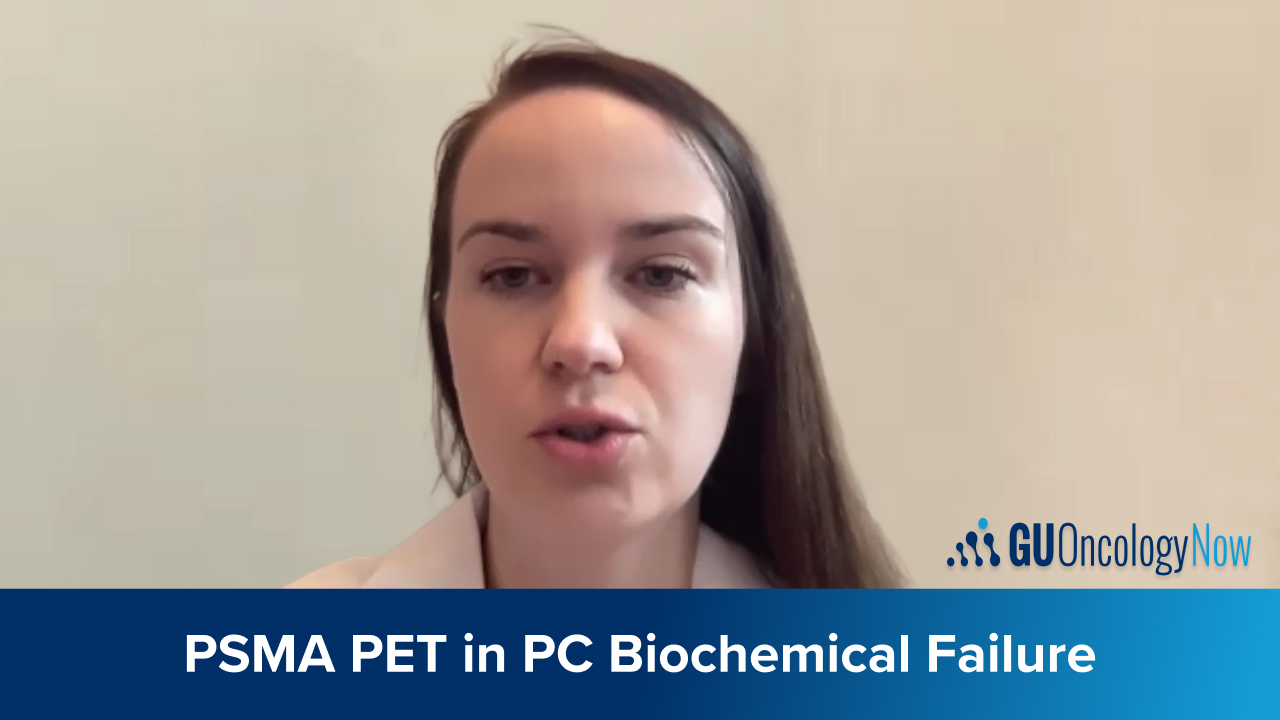

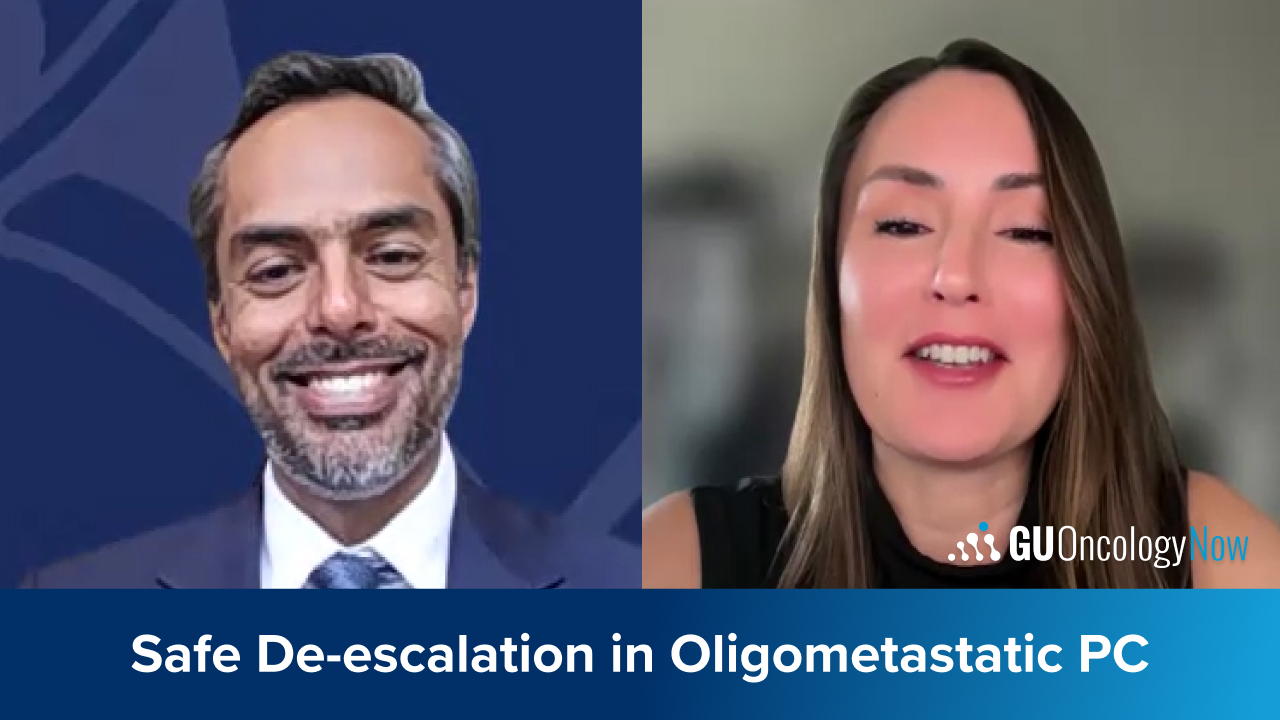
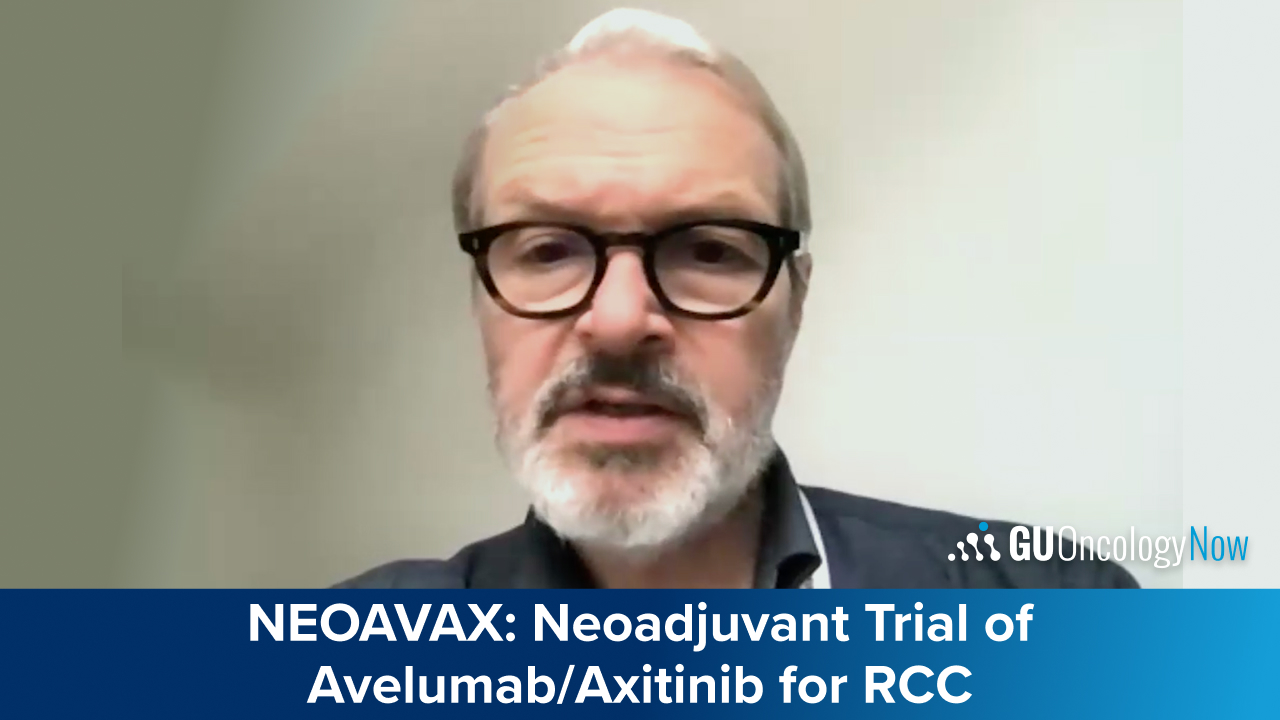
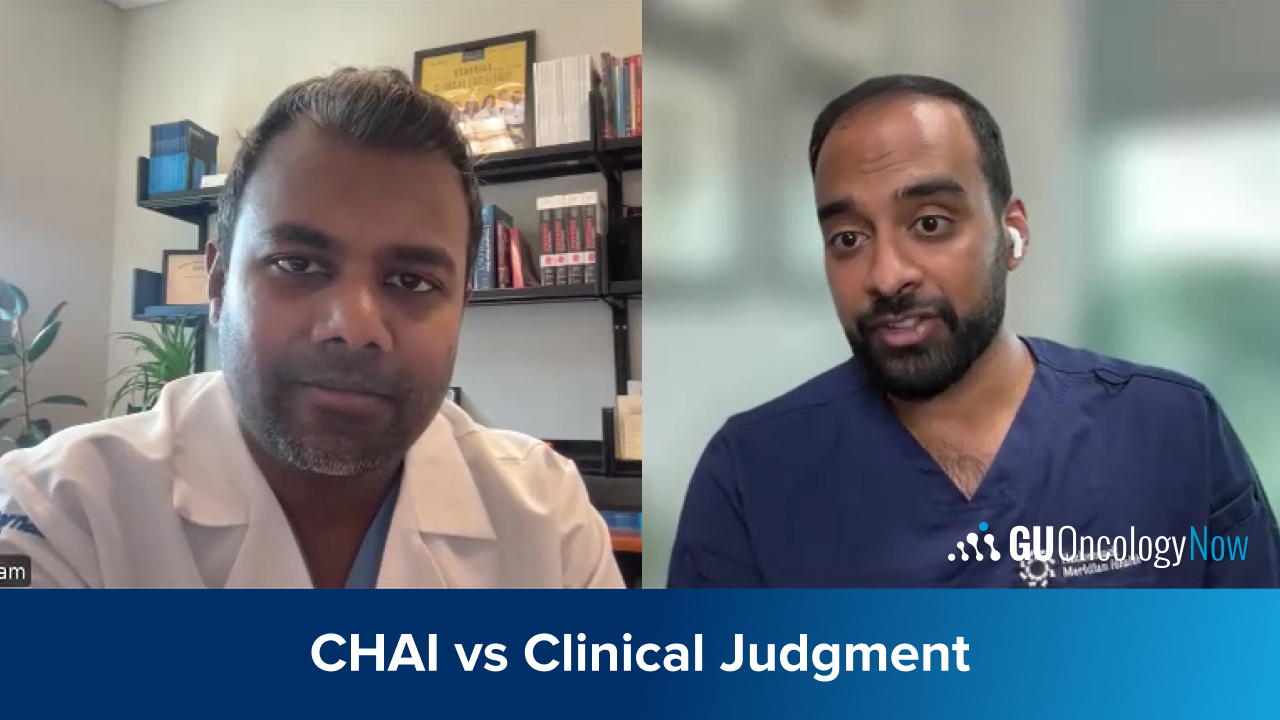

 © 2025 Mashup Media, LLC, a Formedics Property. All Rights Reserved.
© 2025 Mashup Media, LLC, a Formedics Property. All Rights Reserved.